
Imagine it’s a perfect summer evening, the sun is setting, and the irresistible smell of grilled food fills the air. You’re all set to fire up your gas grill, excited for a delicious barbecue. But when you lift the lid, you’re met with greasy, grimy grates. Don’t let dirty grill grates ruin your night! Here’s how to clean your gas grill and keep it spotless, safe, and ready for every cookout.
Whether you fire up the grill daily or save it for weekend cookouts, keeping your grill clean is essential. A well-maintained grill not only delivers tastier food but also lasts much longer. In this guide, we’ll explore the best grill cleaning tips and maintenance hacks to keep your barbecue game strong — and maybe even make your neighbors a little jealous of your outdoor cooking skills.
Key Takeaways
- Regular cleaning after each use prevents rust and extends grill life
- Deep clean grates every 4-6 months for weekly use, annually for occasional use
- Different grate materials require specific cleaning methods
- Avoid wire brushes; opt for nylon brushes for safety
- Use natural cleaning solutions like baking soda and vinegar
- Apply vegetable oil after cleaning to prevent sticking and rusting
- Annual deep cleaning sessions may require overnight soaking
The Importance of Clean Grill Grates
Clean grill grates are the secret to amazing barbecues. Not only do they help prevent flare-ups and burnt food, but they also keep your meals safe, flavorful, and your grill in top shape for years to come. Let’s break down why regular grate cleaning is a must for every grilling enthusiast.
Impact on Food Safety
Dirty grates can be dangerous. They can hold harmful bacteria that make you sick. Clean your grates every five to seven cooks to grill safely.
Effect on Flavor and Cooking Performance
Clean grates prevent flavor cross-contamination and help distribute heat evenly across your food. For best results, use a quality grill brush or barbecue grate scraper after each cooking session. This simple habit keeps your grill performing better and ensures every meal tastes fresh and delicious.
Extending Grill Lifespan
Cleaning often stops your grill from rusting and corroding. Clean it monthly with special products for a deep clean. This keeps your grill working well, saving you money over time.
| Grate Material | Cleaning Frequency | Recommended Cleaning Method |
|---|---|---|
| Porcelain | After each use | Soft brush, hot soapy water |
| Cast Iron | After each use | Wire brush, oil after cleaning |
| Stainless Steel | Every 5-7 uses | Stainless steel brush, vinegar solution |
Remember, taking care of your grill is crucial for safe and tasty outdoor meals. Add these tips to your routine for the best grilling.
Understanding Different Types of Grill Grates
Every grilling enthusiast knows that the type of grill grate you use can make a big difference in your cooking results. Let’s explore the three most common types of grates — cast iron, porcelain-coated, and stainless steel — and see how each one affects your grilling experience.
Cast iron grates are known for holding heat well. They need to be seasoned to stop rusting and can last a long time with the right care. Porcelain-coated grates are easy to clean and spread heat evenly. Stainless steel grates are tough and don’t rust easily.
Each type of grill grate comes with its own care routine. Cast iron grates need extra attention — avoid using dish soap too often, as it can strip away their protective seasoning. Porcelain-coated grates should be cleaned gently to prevent cracking or chipping. Stainless steel grates are a bit tougher and easier to scrub, but keep in mind they may discolor over time with heavy use. Knowing how to clean each grate properly keeps your grill in top shape and your food tasting great.
| Grate Type | Heat Retention | Cleaning Ease | Durability |
|---|---|---|---|
| Cast Iron | Excellent | Moderate | High |
| Porcelain-Coated | Good | Easy | Moderate |
| Stainless Steel | Good | Moderate | High |
Knowing your grate type helps you pick the best cleaning method and care routine. This ensures your grill works well and lasts longer. Clean grates not only make your grilling better but also make your grill last longer.
Essential Tools for Cleaning Gas Grill Grates
Keeping your gas grill grates clean is essential for delicious food and extending the life of your grill. The right tools and natural cleaning methods can make maintenance quick and hassle-free. Let’s explore the best grill cleaning tools and effective natural cleaners to keep your barbecue ready for every cookout.
Grill Brushes and Scrapers
Grill brushes are your first line of defense against built-up grime. For a gentle yet effective clean, choose brass or nylon bristles, especially for delicate surfaces. Scrapers are great for removing stubborn residue without damaging your grill grates. Remember, using the right tool makes all the difference — a brass brush is ideal for porcelain-coated grates to avoid scratching the surface and keep them in great shape.
Cleaning Solutions and Natural Alternatives
Commercial grill cleaners can be effective, but natural alternatives work just as well — and they’re safer for you and the environment. A simple mix of white vinegar and baking soda creates a powerful, eco-friendly cleaner that cuts through burnt-on food and grease with ease. For a deeper clean, soak your grill grates in this solution overnight to loosen tough buildup and make scrubbing a breeze.
Protective Gear
Remember safety when cleaning your grill. Use heat-resistant gloves to protect your hands from heat and harsh chemicals. Safety glasses also shield your eyes from debris and cleaners.
| Grate Material | Recommended Cleaning Tool | Cleaning Frequency |
|---|---|---|
| Stainless Steel | Wire brush or aluminum foil | After each use |
| Cast Iron | Stiff brush, dry and oil after cleaning | After each use, season regularly |
| Porcelain | Soft-bristled brush or nylon scrubber | After each use, avoid metal tools |
With these key tools, you’re set to keep your gas grill grates clean and your food delicious.
How Do You Clean Gas Grill Grates: Step-by-Step Guide
Clean grill grates are the secret to delicious barbecue and a grill that lasts for years. In this easy-to-follow guide, you’ll learn how to clean your grill grates properly and safely. With just a little care, your next cookout will be smoother, safer — and tastier than ever.
Preheating the Grill
Begin by turning on your gas grill and heating it for 15 minutes with the hood closed. This step burns off residue, making cleaning easier. For charcoal grills, clean after you remove the briquettes.
Scrubbing Techniques
Once your gas grill has cooled slightly, it’s the perfect time to tackle the grates. Use a long-handled grill brush — preferably one without metal bristles or a sturdy nylon brush — to start scrubbing. For stubborn grease and stuck-on residue, spray a degreaser like Dawn® Platinum Powerwash Dish Spray, let it sit for 5–10 minutes, then gently scrub to avoid damaging the grates. A little care goes a long way in keeping your grill safe and clean.
Rinsing and Drying
Rinse the grates well with water. Dry them with a paper towel or cloth. Make sure they are completely dry to prevent rust and get them ready for your next grilling.
- Clean stainless steel grates after each use
- Use baking soda, water, and soap for porcelain-coated grates
- Clean cast iron grates with high heat and brushing
- Replace grates if they rust through or pit
Regular grill cleaning saves you time, effort, and frustration in the long run. If you grill frequently, aim to deep clean your grill every 4 to 6 months. For occasional grillers, once a year may be enough. Following these simple maintenance tips will keep your grill performing like new and ready for tasty cookouts year after year.
Deep Cleaning Methods for Stubborn Residue
Dealing with stubborn grill residue isn’t always easy, but the right methods can make a big difference. To deep clean your grill and tackle tough buildup, try soaking the grates in hot, soapy water or a vinegar and baking soda mixture. These solutions help break down heavy grease and loosen burnt-on grime, making scrubbing much easier and more effective.
For severe grease buildup, a powerful grill degreaser can do the heavy lifting. Spray it generously over the grates, let it sit for about 40 minutes, then scrub thoroughly to remove the grime. Prefer a natural option? Mix equal parts water and white vinegar in a spray bottle. This eco-friendly solution cuts through stubborn residue and keeps your grill clean without harsh chemicals.
Remember to rinse thoroughly after using any cleaning solution. This prevents chemical residue from affecting your food’s taste. For optimal results, deep clean your grill every 4-6 months if you use it frequently, or at least once a year for occasional grillers.
Regular grill cleaning helps prevent rust, reduces grease and grime buildup, and keeps your grill looking and performing like new.
To maintain your grill between deep cleans, scrub the grates after each use. This simple habit prevents food particles from becoming stubborn residue. By following these tips, you’ll keep your grill in top shape, ensuring delicious meals every time you fire it up.
Maintaining Cast Iron Grill Grates
Cast iron grill grates are prized for their superior heat retention and durability. They’re perfect for high-temperature grilling and creating beautiful sear marks on your food. However, they do require a bit of extra care to stay in top shape. Let’s go over the best ways to clean, season, and maintain cast iron grates for long-lasting performance.
Seasoning Process
Seasoning your grill grates is crucial for cast iron care. Begin by washing the grates with warm water and drying them well. Then, apply a thin layer of vegetable oil, grapeseed oil, or bacon fat. Heat the grill to 400°F and let the grates season for 40 minutes. Do this 2-3 times before your first use to create a non-stick surface.
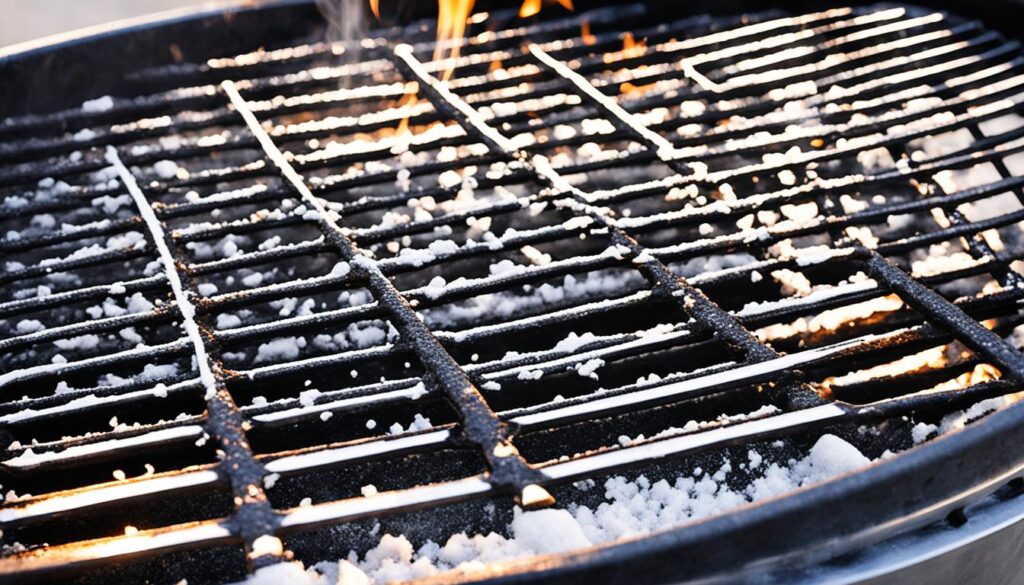
Rust Prevention
To prevent rust on your grill grates, make it a habit to clean them after every use using a grill brush or scraper. Some grillers even swear by scrubbing with half an onion while the grates are still warm — a natural trick that helps loosen residue. Once clean, lightly coat the grates with oil to protect them. If you’re storing your grill for a while, coat the grates in oil, wrap them in plastic or foil, and cover the grill tightly to keep moisture out.
Special Cleaning Considerations
Regular upkeep is key, but deep cleaning is needed once a year. Mix 2 cups of vinegar with 1 cup of baking soda, soak the grates overnight in a sealed bag, then rinse and scrub off any food. Dry them well to prevent rust. Some suggest using mild soap for this clean, but always re-season afterward.
| Cleaning Method | Frequency | Steps |
|---|---|---|
| Regular Cleaning | After each use | Scrape, brush with oil |
| Deep Cleaning | Annually | Soak in vinegar/baking soda, scrub, dry, re-season |
| Soap Cleaning | As needed | Wash with mild soap, dry thoroughly, re-season |
Cleaning and Care for Porcelain-Coated Grates
Porcelain grill grates are excellent at retaining heat and resisting rust, making them a popular choice for many grillers. However, they require gentle care to maintain their protective coating. Always use non-abrasive cleaners and soft brushes to avoid scratching or chipping the surface. With proper cleaning, porcelain grates can stay in great condition and perform well for years.
When cleaning porcelain grill grates, don’t use metal or wire brushes. Instead, go for soft bristle or nylon brushes. This gentle cleaning method stops the porcelain from chipping or getting scratched, which could lead to rust.
For tough grime, try this trick:
- Heat your grill to 600 degrees, then turn it off.
- Place a heat-resistant container of water on the grates.
- Close the lid and let it steam for 30 minutes.
- Scrub the grates with a silicone sponge to remove buildup.
For a deeper clean, mix baking soda, water, and dish soap. Apply it carefully, focusing on tough spots. Rinse well and dry to avoid water spots.
Regular, gentle cleaning is the key to keeping your porcelain grill grates in excellent condition. If you notice chips in the coating or signs of rust, it may be time to replace them. Damaged grates can affect heat distribution and even pose food safety risks. Staying on top of maintenance ensures your grill performs its best and keeps your meals safe and delicious.
Stainless Steel Grate Maintenance
Keeping your stainless steel grill grates in top shape is essential for long-lasting performance and great-tasting food. Clean them after each use to prevent carbon buildup, grease stains, and corrosion. With the right care, your grates will stay shiny, durable, and ready for every cookout. Let’s explore the best ways to maintain and clean stainless steel grill grates.
Preventing Discoloration
Clean your grates right after grilling to stop discoloration. Heat your grill to 500°F for 10-15 minutes before cleaning. This makes it easier to remove tough stains.
Dealing with Tough Stains
For tough, stuck-on stains, the tinfoil trick works wonders. Simply place a sheet of aluminum foil over the grates and heat your grill to around 500°F — the high heat helps loosen stubborn residue. For extra-stubborn buildup, soak the grates in hot, soapy water and gently scrub with a soft brush or sponge. These methods help restore your grates without causing damage.
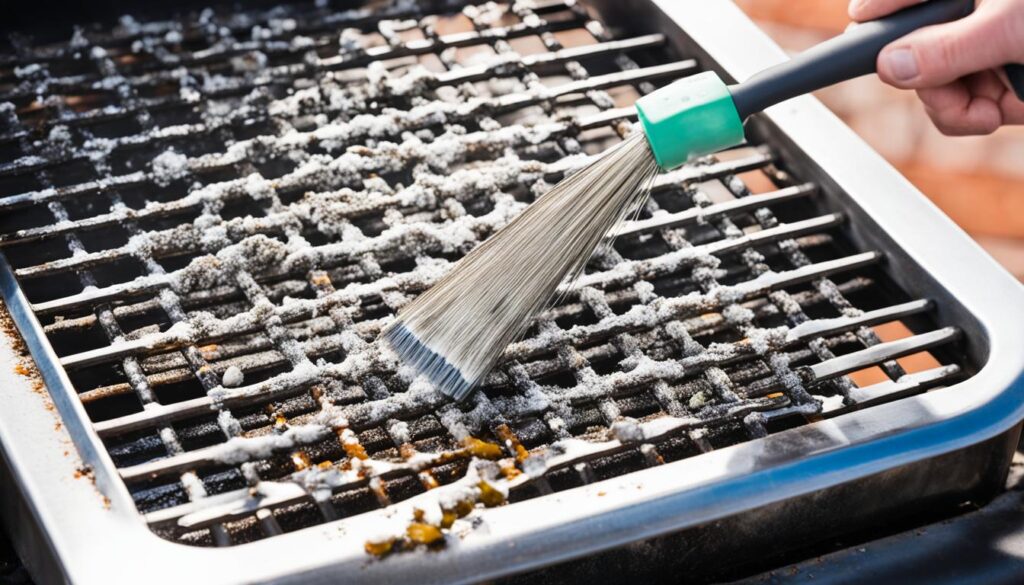
Polishing Techniques
To make your grill grates shine, mix water and white vinegar as a cleaner. Don’t use harsh chemicals that can harm the steel. Remember, a patina on your grids is normal and protects against rust.
| Cleaning Frequency | Method | Benefits |
|---|---|---|
| After each use | Brush and preheat | Prevents buildup |
| Every 4-6 months | Deep clean | Removes tough stains |
| As needed | Polish with vinegar solution | Restores shine |
Follow these tips to keep your stainless steel grates clean, working well, and looking good for many years.
Preventive Measures for Easier Cleaning
Keeping your gas grill clean is easy when you follow a few simple habits. With regular maintenance, you can prevent stubborn buildup and make each cleaning session quick and painless. One of the best tips: always brush the grates while they’re still warm after cooking. This helps remove food particles before they harden, saving you time and effort later.
Apply a thin layer of cooking oil to the grates before grilling to prevent food from sticking. This not only makes cleaning easy but also adds flavor to your food. Using a drip pan to catch grease and food bits is also a good idea. It keeps the grill bottom clean and reduces flare-ups during cooking.
Remember to cover your grill when it’s not in use. This protects it from rain, dust, and other elements that can cause rust and damage. A covered grill can last for years, with some grills working well even after six years. By following these tips, you’ll spend less time cleaning and more time enjoying your grilled meals.
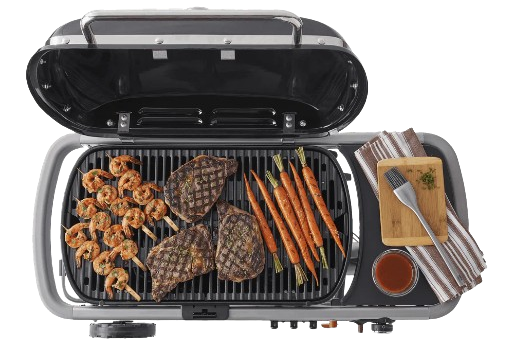
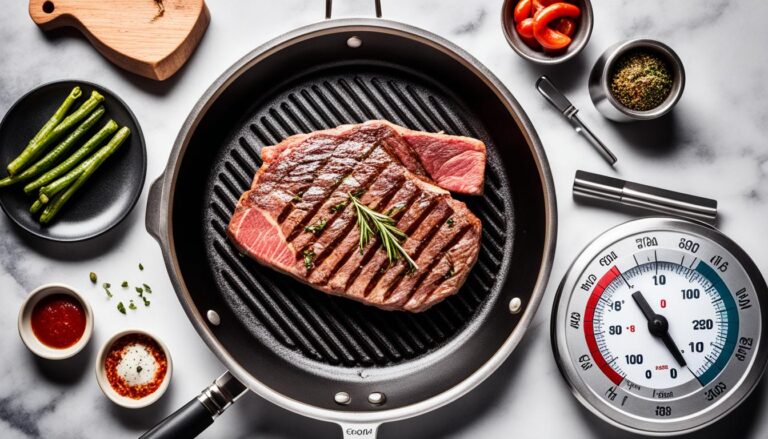
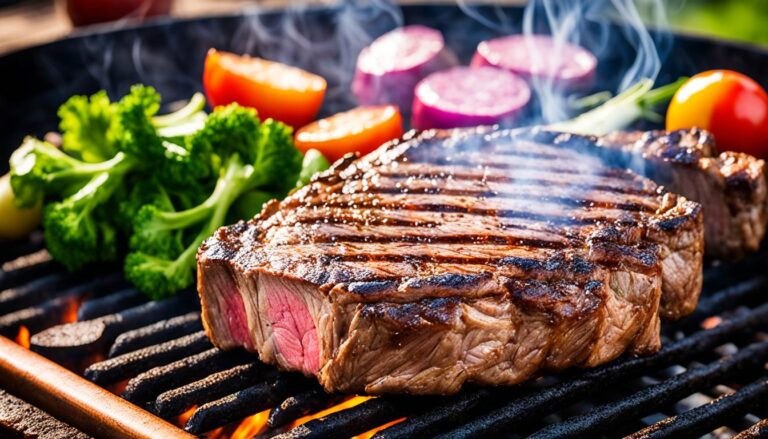
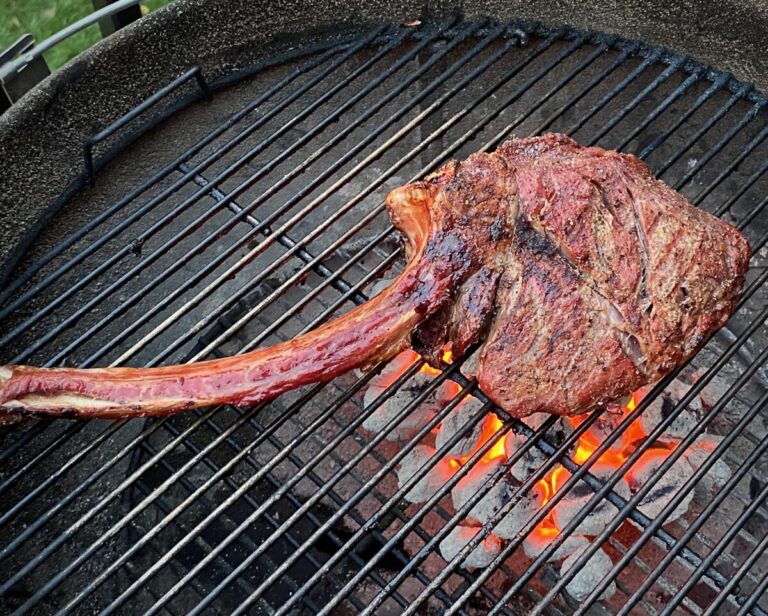
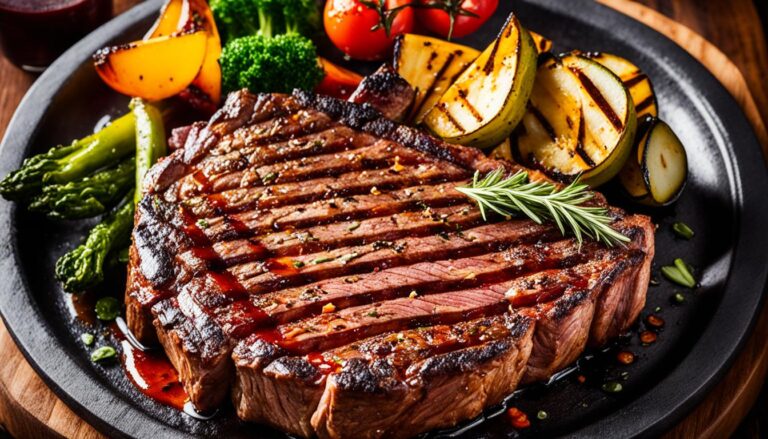

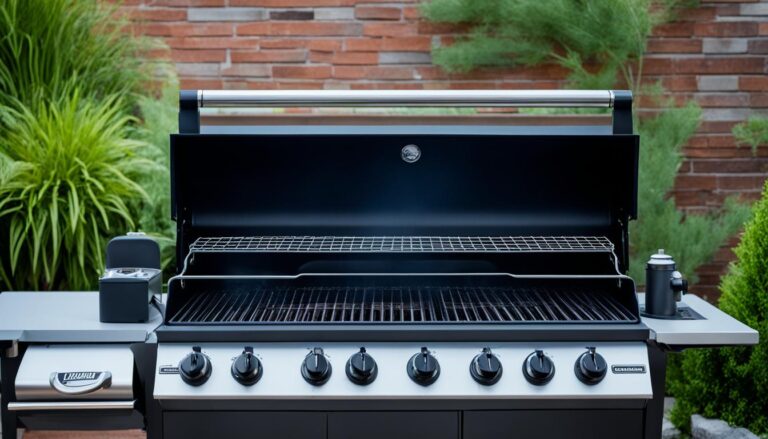
One Comment